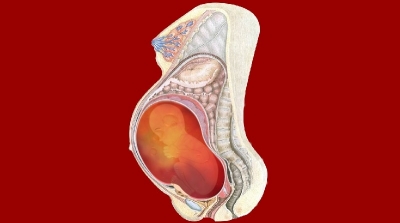critical to spot any intrauterine growth retardation, Humerus length(HL)- measuring the arm bone length, the forelimb from the shoulder to the elbow. After measuring these parameters, the radiologist uses a formula to determine the fetal weight and gestational age of the baby. Note that the weight and the gestational age of the baby are related. The weight calculated is only an approximate and a margin of 10% error is seen. All Pregnancies are unique and you cannot usually compare one pregnancy to another and babies also grow at different rates. So always consult your Doctor before you begin to get concerned about the weight of your baby. Do check out our Fetal weight calculator to see if the weight of the baby is within the normal range. Note that every pregnancy and baby is different. The range for weight is only an approximate weight range. Please consult your doctor if the weight is not within the range. The average fetus weighs close to 80 8rams by the end of the first trimester and grows faster after 22 to 23 weeks to reach a maximum growth rate of close to 220 grams per week by 35 weeks. Babies whose fetal weight is less than the 10th percentile are called small for gestation and may need further evaluation to be done to ascertain the cause of the slow growth. Read about Small for gestation infants here
Babies tend to grow faster and put on more weight during the last trimester. This trimester is very important in terms of weight gain for the baby. You will need an extra 450 to 500 calories per day apart from your regular diet. Make sure the diet is well balanced and nutritious. As you are growing big, the uterus also tends to occupy most of your abdomen, leaving very little space for other organs. Your stomach may also be pushed up and you may be feeling gaseous and full. Eat in small quantities and spread your food throughout the day. Ideally, you should concentrate on foods which have more iron, protein, calcium, fibres, magnesium, Vitamin C and folic acid. Avoid foods high in salt, fats, sugar and those that will just give you empty calories but no nutritional benefits. Avoid fatty foods, caffeine and raw or undercooked eggs and other foods
How to increase the babies weight?
Make sure you also get some physical exercises like - walking, pregnancy yoga etc. and keep active. The last month of pregnancy can be very uncomfortable when you are big and would want to rest it out, but have to keep yourself active. Walking at least 15 to 20 minutes twice a day would help ease out labour. Prevent constipation and heartburn by eating healthy, in smaller portions.
Some tips to Increase the weight of the baby in pregnancy


